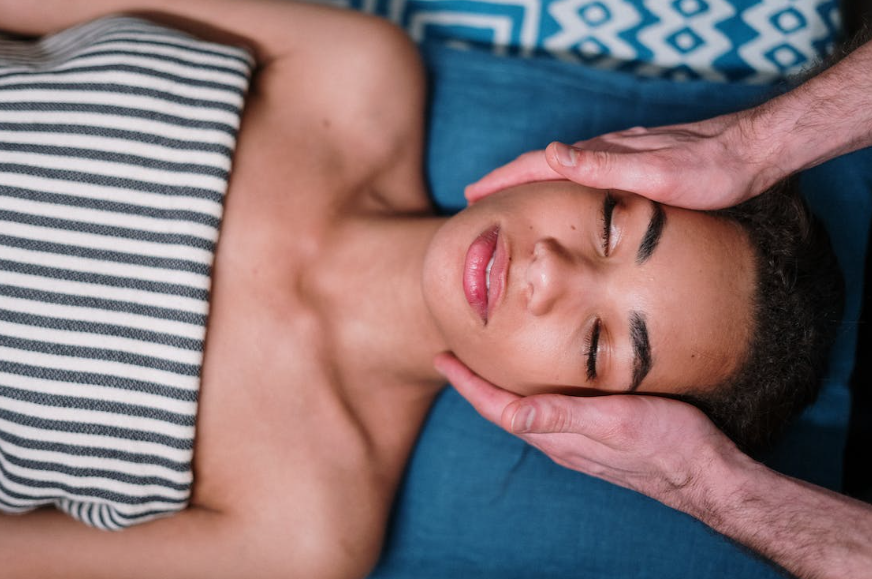Mindfulness Relaxation
Mindfulness is now being examined scientifically and has been found to be a key element in stress reduction and overall happiness. But what really is the benefits of mindfulness relaxation? Read on to learn more.

Selfpause Affirmation App
Download the app to get 1,000’s of affirmation meditations and everything you need to write, record and listen to your own.
Mindfulness relaxation is a simple way to reduce stress and manage emotional difficulties. The practice also helps you develop self-compassion. It focuses on the present moment rather than on past events. It also helps you deal with problems that may arise in the future. However, there are many misconceptions associated with this technique.
Stress reduction

Several studies have suggested that mindfulness-based stress reduction programs reduce stress levels and improve health. However, there are several limitations. One of the most common is the lack of a standardized method of evaluating this therapy. In addition, the majority of studies were small and the sample size was low. This may lead to unobserved biases. As a result, future research should look to conduct large longitudinal studies with higher sample sizes.
The stress response is a natural part of the human body’s response to a perceived threat. This response causes the release of a flood of hormones, including adrenaline and cortisol. These hormones heighten our senses and cause our bodies to respond in a negative way. However, stress can be reduced by slowing down this response by using the parasympathetic nervous system.
By practicing mindfulness, we can shift from our “doing” to our “being” state. The practice also helps us improve our emotional intelligence by increasing our awareness of our own needs. Through this, we can develop compassion, and thus calm the stress response. Moreover, mindfulness practices have been shown to decrease the activity in our amygdala (the part of the brain that triggers the stress response).
These studies are limited by the sample size and method of research used. In addition, the majority of the participants were Caucasian females, which limits the generalizability to minority groups. Further research is needed in more diverse populations.
Self-compassion

The practice of self-compassion is an excellent way to improve your emotional wellbeing. It can also help you reduce anxiety and improve your diet and exercise routine. The key is to change your attention. Begin by identifying negative thoughts and feelings. Then, slowly shift your focus to the positive.
Self-compassion meditation is an easy and effective tool for personal development. It is quick to learn and produces fast results. It also helps rewire the brain to support better self-care. As you continue to practice this practice, you will gradually appreciate how beneficial it is for you. This practice will become increasingly important as you age.
Self-compassion involves focusing on your feelings and thoughts about yourself. When you experience difficult situations, self-compassion will soothe you and redirect your negative thoughts. It can also help you overcome over-identification, a process of ruminating about a difficult experience. It can also help you improve your concentration and decrease anxiety levels.
While self-compassion is not a substitute for mindfulness, it is an important part of mindfulness practice. It helps us accept the pain we experience and understand that it’s a normal part of life. Self-compassion encourages us to take a compassionate view of our experiences, and it improves our mental health.
Reducing emotional difficulties

Mindfulness-based relaxation has been proven to reduce the emotional difficulties of patients suffering from depression. It increases the quality of life and improves the brain’s connectivity. It also has positive effects on cognition, including increased levels of stress tolerance and reduced perceived stress. In addition, it has also been linked to increased blood flow to the brain. Some studies also show that it can reduce chronic pain.
Its elements, such as awareness of the present moment and nonjudgmental acceptance, are believed to be antidepressants against the common forms of psychological distress. Such distress typically involves maladaptive tendencies to avoid or suppress distressing thoughts. Mindfulness has been practiced for centuries in many spiritual traditions, but the application of the practice to psychological health started in the 1970s.
The effects of mindfulness training have been studied in a variety of settings. Most studies have included post-experimental manipulation checks to ensure compliance with training instructions. However, mindfulness instruction does not appear to be the only way to improve emotion functioning. Further research is needed to determine the optimal mindfulness training approach.
In general, mindfulness-based interventions have positive effects on psychological health. They reduce emotional reactivity, reduce psychological symptoms, and improve behavioral regulation. However, research needs to be conducted to confirm the benefits of these interventions and determine how to deliver them more effectively to patients.
Self-acceptance

Self-acceptance is one of the keys to recovery from addiction. There are many exercises you can do to develop this quality. These activities can help you understand the good qualities about yourself and others. The Australian Department of Education and Training offers a self-acceptance activity that is great for the classroom.
Self-acceptance involves accepting the way you are regardless of your situation. This can be difficult for people with low self-esteem. They must confront cognitive distortions and negative beliefs about themselves. A woman battling anorexia can practice self-acceptance by acknowledging her body as imperfect and committing to working on it. Even a student who receives Cs in college may develop self-acceptance if he realizes that he has many strengths that are not reflected in his grades.
Mindfulness is a concept that combines ideas about the here and now with ideas about self-reflection and awareness. This process of integration helps the mind become more flexible and mature. The ancient Chinese text Zhuangzi outlines the concepts that encompass this approach. It emphasizes the importance of non-judgment and non-attachment. It also encourages more positive responses to the experiences we have.
The practice of mindfulness combines awareness, self-acceptance, and self-compassion. The intention of mindfulness is to make us less self-centered. The higher the level of mindfulness, the more congruence between implicit and explicit assessments of self-related attributes. This concept is more appropriate than self-actualization.
Getting to know yourself

Learning how to meditate can help you find your inner knowledge and get to know yourself better. In this way, you can block out the distractions from the outside world and focus your attention on yourself. You may be surprised to learn that meditation can help you develop your problem-solving abilities and creative thinking. Meditation can also be focused on specific aspects of yourself, such as your personality, and may help you become more aware of your strengths and weaknesses.
Getting to know yourself in this way is helpful for many reasons. Not only does it help you understand your thoughts better, but it also allows you to identify hidden behaviors. It can help you become more compassionate and loving towards yourself. For instance, if you frequently lose your temper, you may see yourself as an angry person, but by observing this behavior you can change this self-image.
Self-discovery through meditation is an excellent way to clarify your interests and desires and to create a path for your life. You may discover a new passion or identify with a different aspect of your personality. For example, if you love to create art, you may find that your passion is in the realm of creativity.
You should also allow yourself to allow your mind to wander during your meditation. Oftentimes, it will be hard to remain focused because thoughts will distract you. When this happens, simply smile and gently bring yourself back to your breath. If you cannot focus, try again another time. The key to practicing mindfulness is to develop a loving attitude toward yourself and your thoughts. Make sure you see your thoughts as your friends, and don’t judge them harshly.
Changing your state
Changing your state of mindfulness relaxation can be challenging. People are naturally fearful of change. Breaking from the routine of daily life can be very uncomfortable and destabilizing. Practicing mindfulness can help you to deal with change and navigate it more smoothly. In this article we’ll outline some simple techniques that will help you transform your state of mind.
Our Top FAQ's
Mindfulness relaxation is a type of relaxation technique that involves focusing on the present moment and being aware of one’s thoughts, feelings, and physical sensations without judgment. It is different from other relaxation techniques in that it emphasizes the cultivation of mindfulness and self-awareness, rather than simply seeking to achieve a state of relaxation.
Mindfulness relaxation can be helpful for reducing stress and improving overall well-being in a number of ways. By focusing on the present moment, it can help to interrupt the cycle of negative thinking and worry that can contribute to stress and anxiety. It can also help to improve sleep, boost the immune system, and reduce physical symptoms of stress such as high blood pressure.
Mindfulness relaxation can be practiced by anyone, regardless of age or experience. It is a simple and accessible technique that can be tailored to the needs and preferences of the individual.
There are many different exercises and techniques that can be used to practice mindfulness relaxation. Some common ones include mindful breathing, body scans, and mindful walking. These techniques can be practiced on their own or in combination with other relaxation techniques such as progressive muscle relaxation or visualization.
To incorporate mindfulness relaxation into daily life, it is important to set aside dedicated time for practice, even if it is just a few minutes each day. It can also be helpful to find a quiet, comfortable place to practice and to establish a regular routine. Additionally, incorporating mindfulness into daily activities such as eating, showering, or even walking can be a helpful way to bring a sense of awareness and presence to everyday life.
